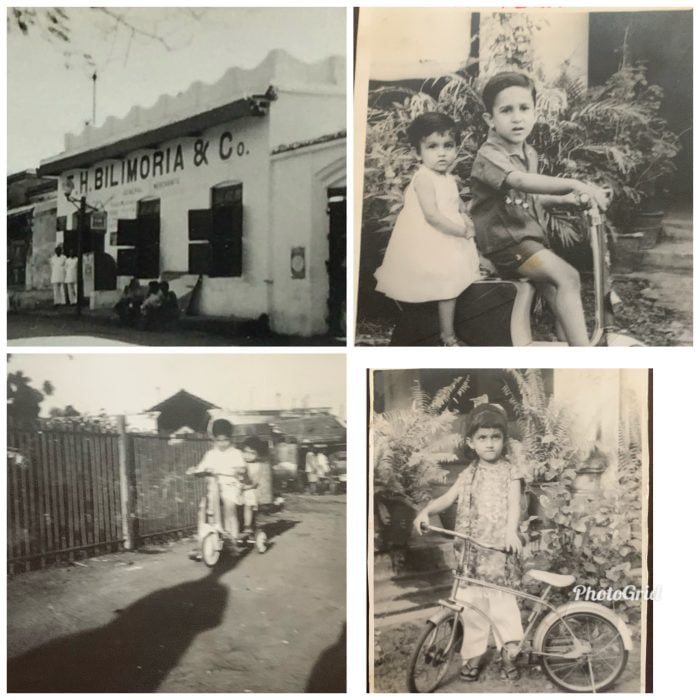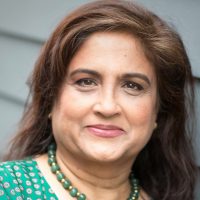{*Did you know you can write on Elephant? Here’s how—big changes: How to Write & Make Money or at least Be of Benefit on Elephant. ~ Waylon}
~
I grew up in a small town in India.
We did not have the fancy stores, the trendy restaurants, and the up-market markets that most big-town folks had.
So as kids, we sat around woefully condemning our fates.
When my cousins came in from other parts of India in their trendy clothes using hip words, I would bemoan my fate once again. I would sit and dream of the day I would get off this isolated island of mine and make it to the big city.
However, for all the things we never had, we certainly had an exposure to people from different lands, different languages, different food, and different looks. If that isn’t education, then I don’t know what is!
Cuttack, my hometown, had the Chinese, the Parsis, the British, the Assyrian, and a whole bunch of students from different parts of the world attending our local medical college. The mix in this sparsely populated town was exotic and mysterious.
But almost every family in town knew each other. Everyone knew whose kid belonged to whom. So, getting into trouble or doing something that was not kosher was a guaranteed communication back to our personal headquarters by some uncle or aunty. But some of us persisted.
However, with all of this came the joy of blending in like an extended family. We celebrated each other’s faith, festivals, and food. You did not have to be a Muslim to say “Eid Mubarak” to a Muslim friend or be a Christian to say “Happy Christmas” to a Christian friend. During Pooja and Diwali, Hindus, Buddhists, Jains, Parsis, and Muslims participated equally. We celebrated each other.
This is the gift my small town gave us. We were being taught what acceptance and tolerance were and how to respect and cherish each other no matter how different we were.
My earliest education on differences and acceptance came early. In our town lived the only two Parsis in Cuttack back then, brothers Navroze and Rustom, who ran a general store on our main street called F.H. Bilimoria & Co. The store, which was a huge, double-story building had horizontal cabinets where all the wares they brought in from Calcutta to be sold were displayed. The two brothers lived upstairs.
Parsis are a community in India that follow the Zoroastrian faith. With roots in Persia, many of them made their way to India to escape religious persecution. The two brothers were always traditionally dressed, wearing their long muslin shirt called sudra with a girdle or kusti worn on top of loose cotton trousers, all in white. If they were not inside the store looking after their customers, you would find them standing outside their front door as you can see them in this picture, watching our little world go by.
The two brothers became what we call family friends. My earliest memory is of me being chauffeured on a bike from our home to the Gopabandhu Park almost every evening, and on our way back stopping at their store while my grandfather chatted them up and I ran around munching on a Cadbury chocolate or something fancy they would give me. This continued till I could ride my bike on my own alongside my grandfather and every evening without fail we were there. When they went upstairs one-by-one for their evening prayers, they would talk to us about their rituals and their faith. I still smell the incense that wafted down from the upstairs.
As I grew older, I remember their conversations. They talked about history, religion, the world, and so much more. I look back now and think of how educational all that was. No textbook would give me that kind of knowledge.
And no other place, other than a small town, could give one access to this kind of diversity. We grew up knowing and feeling we were all one. There was no division—no lines drawn in blood or money over faith and politics.
Today, I live in one of the biggest cities in the world. I have all the trendy markets, restaurants, and fancy cars plying around that I always dreamt of, but what surrounds us all here is this gaping hole of division.
I am afraid of having conversations with friends and I am afraid to respond to social media posts. There is no tolerance left amongst us. There is no acceptance of differences. We are all on individual horses trying to vanquish the other.
We are divided. We are polarized.
Are acceptance and tolerance imbibed and learnt unconsciously? Why do some of us have it and some don’t?
If it is, then, I will say, this is the gift my small town gave me.
~
{Please consider Boosting our authors’ articles in their first week to help them win Elephant’s Ecosystem so they can get paid and write more.}
~
Ready to join?
Hey, thanks so much for reading! Elephant offers 1 article every month for free.
If you want more, grab a subscription for unlimited reads for $5/year (normally, it's $108/year, and the discount ends soon).
And clearly you appreciate mindfulness with a sense of humor and integrity! Why not join the Elephant community, become an Elephriend?
Your investment will help Elephant Journal invest in our editors and writers who promote your values to create the change you want to see in your world!
Already have an account? Log in.
Ready to join?
Hey, thanks so much for reading! Elephant offers 1 article every month for free.
If you want more, grab a subscription for unlimited reads for $5/year (normally, it's $108/year, and the discount ends soon).
And clearly you appreciate mindfulness with a sense of humor and integrity! Why not join the Elephant community, become an Elephriend?
Your investment will help Elephant Journal invest in our editors and writers who promote your values to create the change you want to see in your world!
Already have an account? Log in.
 Share on bsky
Share on bsky






Read 1 comment and reply